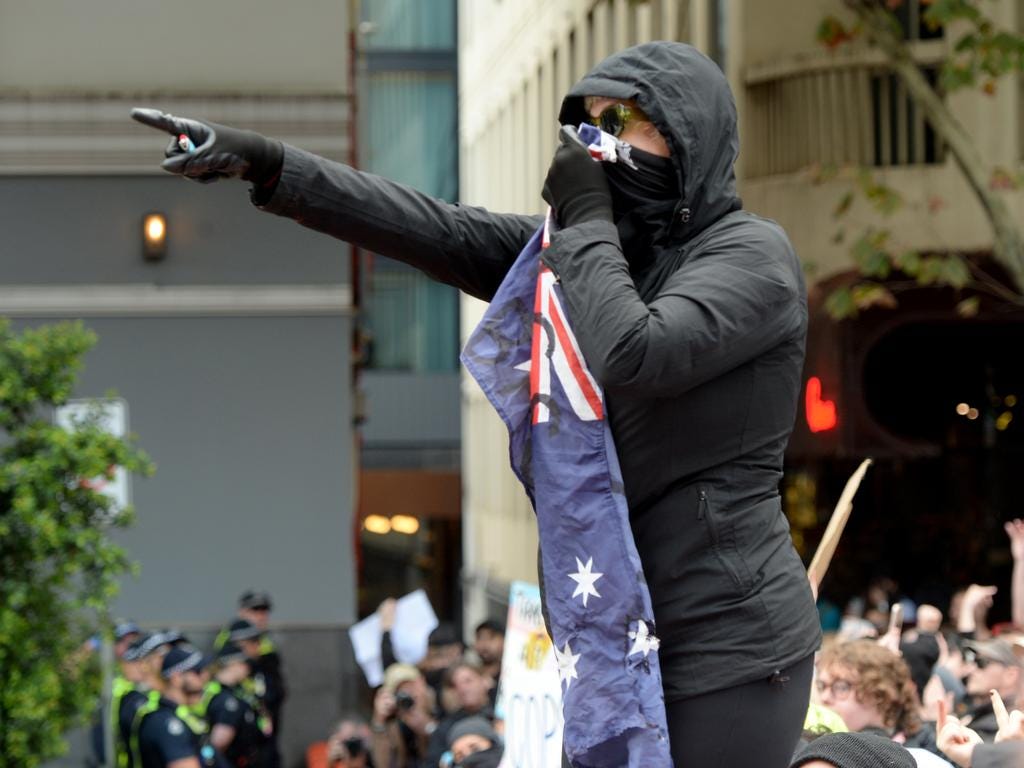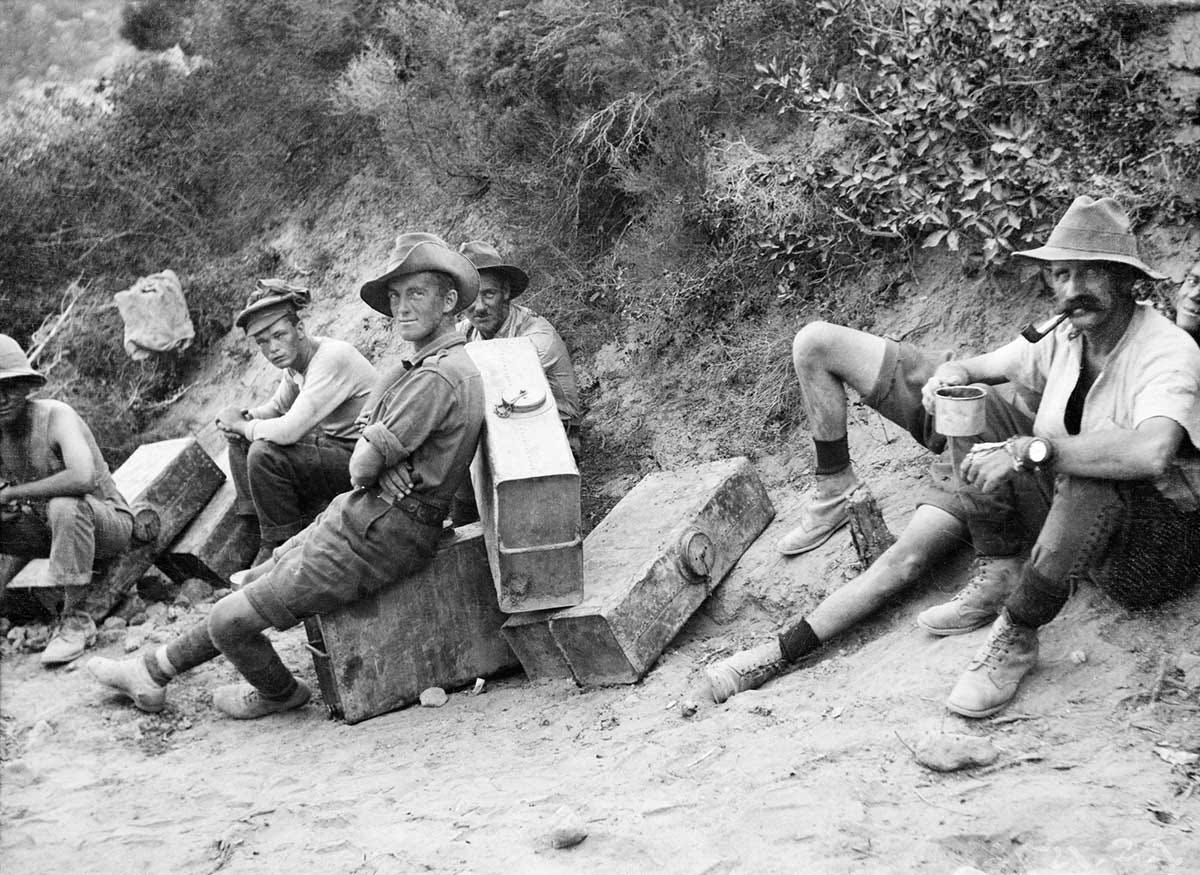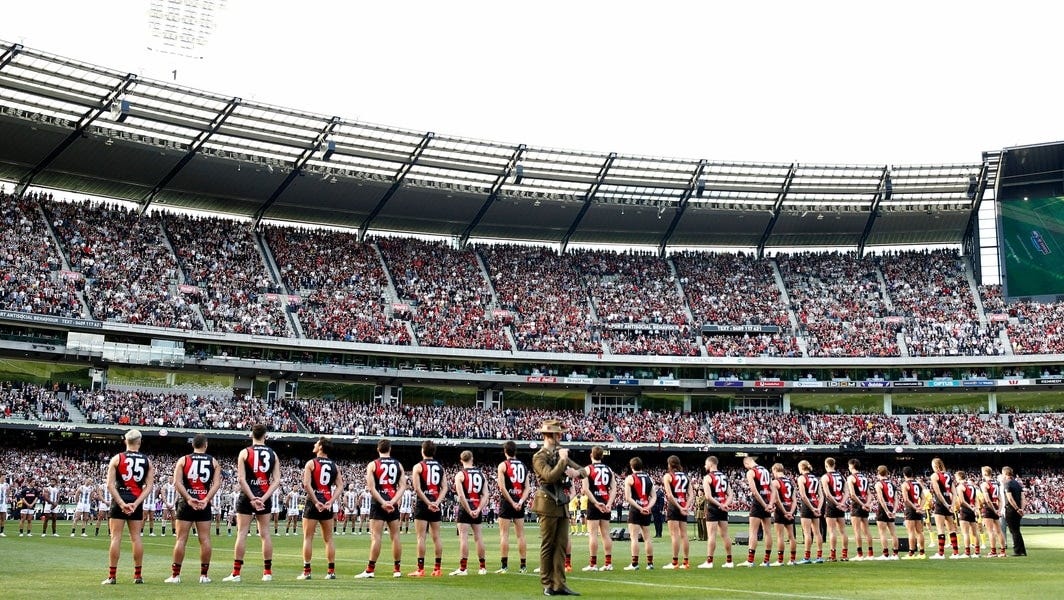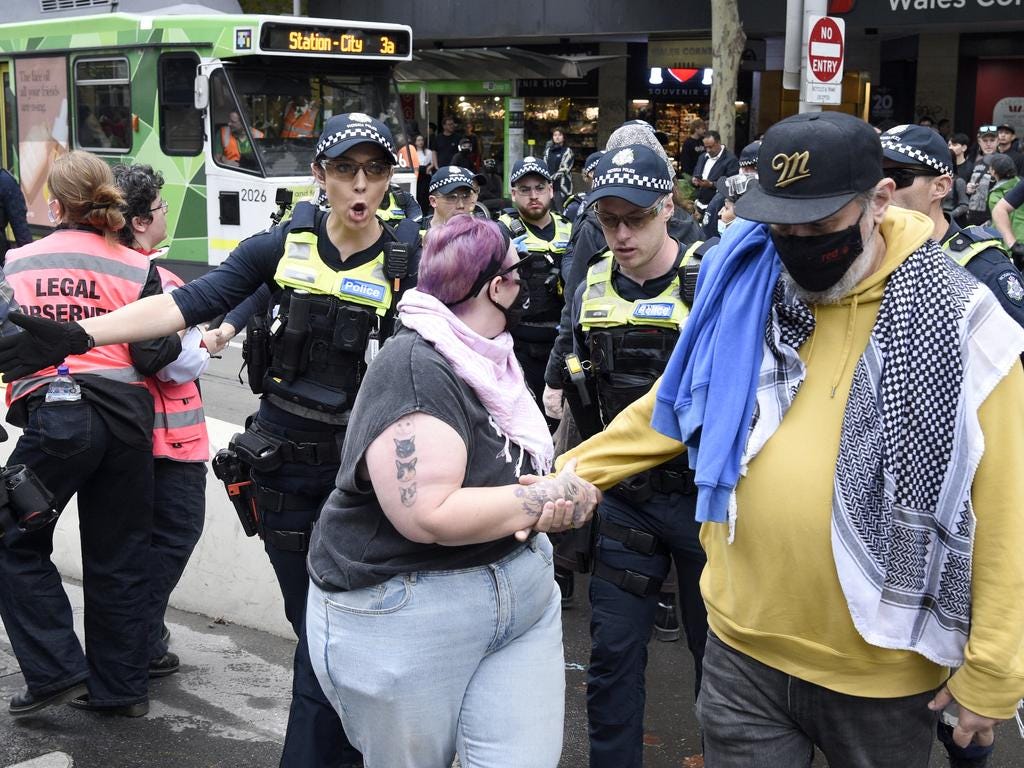I wanted to write this piece a few days ago, but unfortunately I had food poisoning on Friday night. It’s strange how it takes feeling ill for hours on end to realise how much you take your wellness for granted. Today I am full of gratitude for not feeling queasy.
Luckily it was a long weekend here in Australia, in commemoration of ANZAC Day, so I had plenty of time to recuperate, and spent Saturday on the couch with my Staffy Syd watching Aussie Rules Football (AFL).
Anzac Day is a very important day for us. Celebrated to commemorate the Australian and New Zealand Army Corps (ANZAC) who landed at Gallipoli on April 25, 1915, during World War I.
The Gallipoli campaign was a disastrous Allied attempt to capture the Gallipoli Peninsula during World War I. For the vast majority of the 16,000 Australians and New Zealanders who landed on that day, it was their first experience of combat. By that evening, 2,000 of them had been killed or wounded.
For the next eight months, the Australians advanced no further than the positions they had taken on the first day. By the time the campaign ended, more than 130,000 men had died: at least 87,000 Ottoman soldiers and 44,000 Allied soldiers, including more than 8700 Australians.
However despite the failure of the military campaign, Gallipoli became significant because it has become a foundational symbol of national identity for Australia and New Zealand. It represents the birth of Australian and New Zealand national consciousness and established the Anzac legend, characterised by courage, endurance, ingenuity, mateship, and a sense of humour.
To understand the legend of the Anzac spirit is to understand what it means to be Australian.
The day is commemorated in Australia and in Gallipoli itself. Every year, Turkey hosts an Anzac Day service near the shores of Gallipoli. The Gallipoli campaign is also an important part of Turkish history. Despite the huge loss of life on both sides, both countries commemorate the sacrifices of their respective soldiers.
Synonymous with the Anzac Day commemoration is the Anzac Day Footy match. Held every year on the 25th April at the MCG in Melbourne, the match is played by two of Melbourne’s longest established teams, Essendon and Collingwood, to the roar of a sold-out crowd of over 90,000 supporters.
Included in the ceremony of the day is a ‘Welcome to Country’ by one of our indigenous leaders, a minutes silence (very powerful amongst a crowd of almost 100,000 people), followed by the haunting sound of ‘Reveille’ played on a bugle or trumpet that signals the end of the period of silence.
While the bugle is played, the Australian and New Zealand flags are slowly raised to the masthead. The period of silence is a powerful moment of respect and remembrance. The tradition of the silence allows people to reflect on the sacrifices made, to mourn the lives lost, and to express gratitude for the freedoms and peace that came from their service. It’s deeply emotional — a shared, collective pause to remember bravery, suffering, and loss without words.
While I was standing in my living room, observing the minute of silence, watching our ‘Australianism’ play out on my flat screen television in full colour, I couldn’t help thinking that this is what it means to be Australian.
Aussie Rules Footy is our national game. It’s tough, fast, exciting and doesn’t discriminate. Strong, fit young men standing side by side, regardless of race, religion or creed, at the peak of their fitness about to battle it out in front of a Colosseum packed with passionate Aussies of all demographics.
There is no DEI in footy. No critical race theory, no women who claim they are men, just Aussies of all identification partaking in one of our greatest loves — footy.
Elite level skilled young athletes fighting for the honour of winning a game on Anzac Day. Over the length of the AFL Anzac round of games, millions of Aussies either turned up or watched the games at home, and as far as I could see not one Palestinian or Jihadi flag in sight.
This is Australia, this is what we are all about.
Meanwhile on Saturday in front of Parliament House in down town Melbourne, 40 people peacefully rallied under the ‘Women Will Speak’ banner, which is part of the global ‘Let Women Speak’ movement, which argues that laws promoting trans inclusion have eroded sex based rights and intruded unreasonably into women’s spaces.
Enter the trans-rights activists, many wearing keffiyeh’s I might add, who after disrupting the women’s rally, then went on to roam the streets, creating chaos, violently clashing with police, blocking roads and distressing local businesses and bystanders alike.
Because apparently it’s not enough these days to have the right to protest in one of the best, most free countries in the world. Protesting today has to involve stripping anyone who happens to be in your vicinity of their rights, freedoms and peace — anyone that does not share your specific view of the world should be violently accosted and taken down.
And then of course you have to cry victim when the police, who are trying to do their job, pepper spray you.
Last week, Abdifatah Ahmed was shot dead in Melbourne's west after allegedly charging at police with a knife. Police say officers told the man to drop the weapon and shot the man when he charged at police. Tasers are not widely available to Victorian police. Of course hundreds of people from the Muslim Somali community rallied the next day, claiming that the man that charged police with a knife was in fact the victim, and that the police, and anyone else that approves of the police doing their jobs are racist Islamophobes.
This is not what it means to be Australian.
This self centred narcissism of the modern day left wing protestor is symptomatic of a generation who have never had anything of great significance to complain about. A generation that the closest they have come to combat is sitting alone in front of a game console. A generation that has enjoyed the spoils of a life that our Anzacs and those that came after them fought for. A generation that has enjoyed more freedoms that any generation before them, and in response wants to tear the system down.
While our Anzacs swam to the beach of Gallipoli, past the bodies of their fallen brothers, knowing full well that their own death was imminent, todays protestors are chanting with placards to allow men into women’s change rooms.

They shall grow not old,
as we that are left grow old;
Age shall not weary them,
nor the years condemn.
At the going down of the sun
and in the morning
We will remember them.Response:
We will remember them
Lest we forget
— Ode of Rememberance
This generation haven’t had to fight for anything, so they bundle up their boredom and insignificant lives and latch on to the ‘trending’ movement in the hope of giving themselves some semblance of meaning. God help them if they ever do get called up to protect our country.
However despite the media coverage, the violent clashes in the CBD were relatively minor. Two or three hundred people, that I do not believe represent the majority of our beautiful country. I choose to believe that most of us do in fact aspire to embody the spirit of the Anzacs. That we love our country and would fight for it if asked.
For all of those that have served, I thank you for your service. For those that have sacrificed loved ones so that my children can be free, I thank you for your service. Thank you for protecting our freedom with your bravery.
From an Australian in gratitude.








Thank you for explaining this. I’d heard the names (ANZAC, Gallipoli) but embarrassingly never really had more than a guess what they meant. Another excellent essay.
It is sad that it took The Great War and so many deaths for countries like Australia, New Zealand, and Canada to "come of age" asserting the courage of their soldiers and their independence from the Motherland. Yet, it is very important for all citizens to commemorate the sacrifices made in that war and subsequent ones so that these countries could remain free and flourish.
It is horrible that Anzac Day and Remembrance Day are marred by protests that contort the meaning of human rights and freedom. Those that are new immigrants to Australia, New Zealand, Canada, and all western liberal countries, must be warned that rights come with obligations to adopt the values of their host nations. They must not be allowed to make a mockery of the protections of free speech and freedom of assembly as they have done in support of terrorist organizations like Hamas or to deny the privacy rights of women.